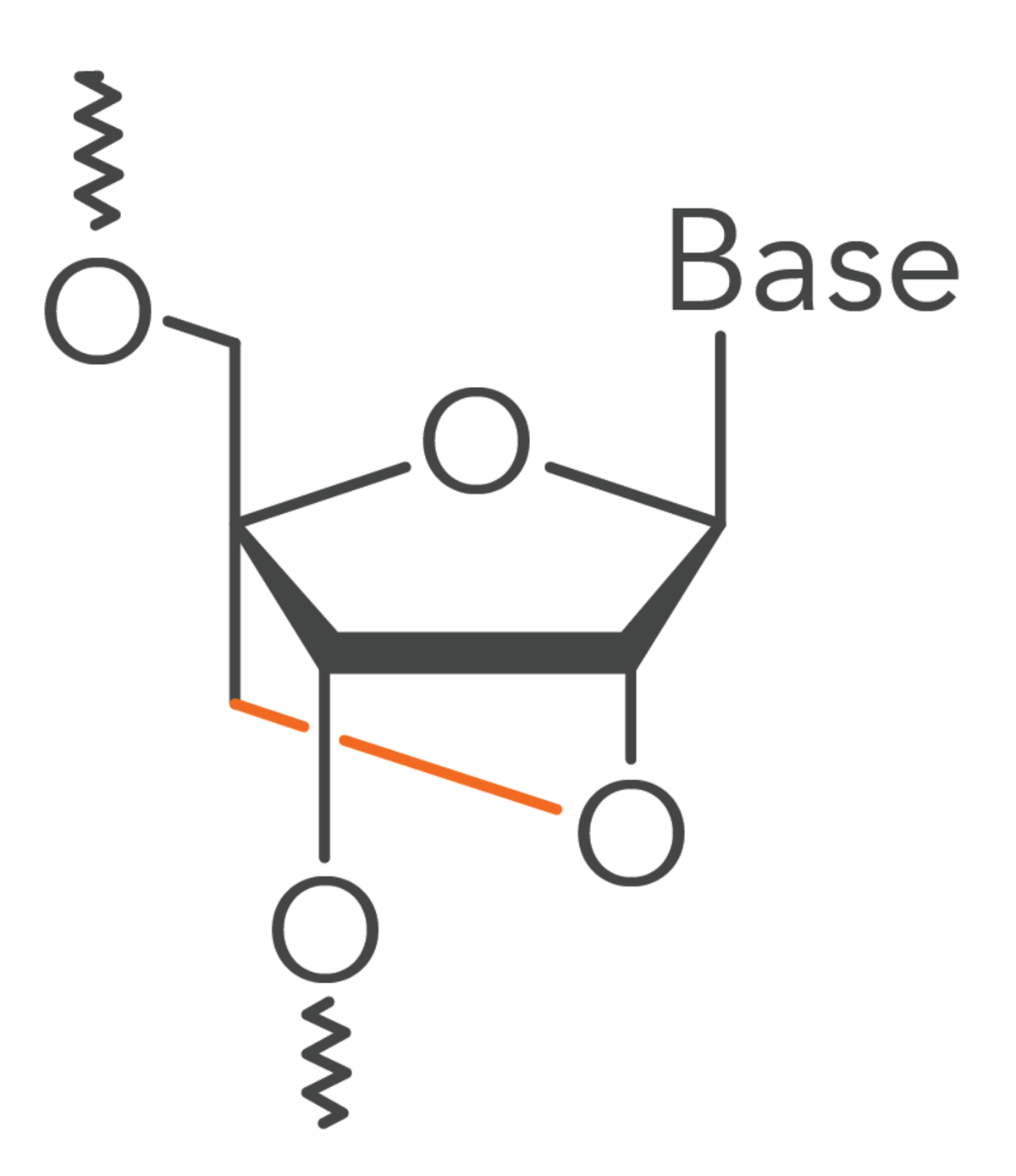Improve assays with customizable oligos and probes containing cost-effective locked nucleic acids
Locked nucleic acid bases impart heightened structural stability to Affinity Plus DNA & RNA Oligos and Affinity Plus qPCR Probes. This enhanced stability is derived from a methylene bridge bond that links the 2′ oxygen to the 4′ carbon of the RNA pentose ring of this modified RNA base (Figure 1).
Adjustable Tm
The change in sequence conformation of Affinity Plus Oligos and qPCR Probes increases probe:target hybridization binding strength, resulting in an enhanced oligo Tm. Unlike other modifications used to enhance oligo Tm (e.g., MGB modifications), the Tm of Affinity Plus DNA & RNA Oligos and Affinity Plus qPCR Probes can be adjusted based on the location and number of modifications added to the oligo. 1–6 locked nucleic acid monomers can be inserted into a single Affinity Plus sequence, making it possible to design a probe with a ΔTm >15°C and to optimize sequence Tm for your specific experiment.
Increased specificity and stability
Use Affinity Plus qPCR Probes for SNP genotyping, transcript variant identification, and sensitive target detection in challenging samples, such as FFPE tissue or biofluids. The tighter binding of Affinity Plus qPCR Probes increases their target specificity. Thus, it becomes easier to design probes for challenging sequence regions, such as those with high AT content, or where target areas are short. The relatively stronger binding strength also makes it possible to use shorter probes in your hybridization assays. Shorter probes can be an asset, especially in rare target detection, such as SNP analysis, as shorter probes are more effectively quenched and provide greater mismatch discrimination, thus returning stronger, more accurate signals. In addition, Affinity Plus sequences provide increased resistance to exonucleases. Thus, Affinity Plus Oligos and qPCR Probes won’t be degraded as easily in vitro or in vivo. Use Affinity Plus DNA & RNA Oligonucleotides for increased hybridization Tm, stability and nuclease resistance over standard oligonucleotides.
Broader size and probe quencher options, affordable price
IDT offers Affinity Plus qPCR Probes and Oligonucleotides that are more cost-effective while providing identical performance as PrimeTime qPCR LNA Probes, and locked nucleic acid probes and oligos from other vendors. These Affinity Plus locked nucleic acid bases are widely available across different IDT oligo products, including Ultramer Oligonucleotides.
Learn more or order Affinity Plus DNA & RNA Oligonucleotides.
Learn more or order Affinity Plus qPCR Probes.

